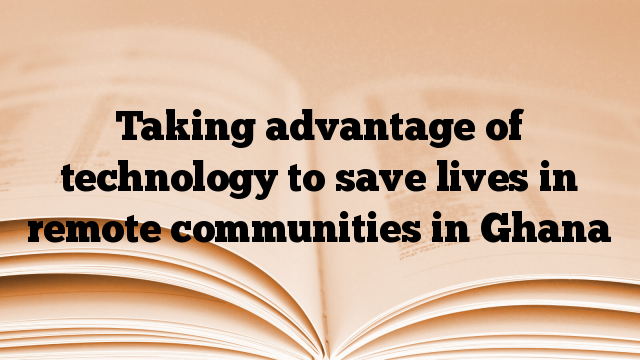Sunday, July 25, 2021.
This is a message put this morning on the WhatsApp platform for the Obstetrics Department in Catholic Hospital, Battor together with all the ‘peripheral’ facilities that refer patients to Battor:
Please …….. hospital is referring a morbidly adherent placenta. Placenta could not be delivered during an emergency caesarean section for foetal distress.
Doctor has applied tourniquet and patient being referred.
Blood group B+.
Thanks
Great work by the Obstetrics team led by Dr. Atuguba (who is also the medical superintendent of our hospital). This WhatsApp platform started many years ago has saved many lives.
In the 19 and half years that I have been in Battor I have seen technology used to save many lives. Eighteen years ago, there was no network services for any of the telcos – no MTN (then called Spacefon, later it became Areeba), no Vodafone (then called OneTouch) in Battor…
To make a phone call, I had to drive to the next town, Mepe, to queue and pay to use a noisy radio phone. I wrote on sports for a local paper. There was no internet service in Battor. To get my articles to my editor, I had to drive all the way to Sogakope to get internet access.
Patients were referred to our hospital as emergencies and arrived unannounced. Some died even before they got to our hospital. We had maternal mortalities which could have been prevented because health workers could not communicate. We ourselves referred patients to tertiary centres in Accra without calling them to inform them about the patients.
Two decades on, when I tell some of these stories, some of the young doctors and nurses look at me in disbelief. Like the patient mentioned above, a message on a WhatsApp platform alerts the Labour Ward, Theatre, Laboratory, Blood Bank etc. The blood group of the patient is known. The Blood Bank makes arrangements to get blood for the patient even before she arrives.
We have the same situation in other areas including cervical cancer screening. With mobile colposcopes (and some good mobile phones), trained health workers across the country discuss cases with specialists without asking patients to travel long distances to see specialists everytime.
Technology can have its bad side but there are many good sides of it. Many lives have been saved and can be saved if we take advantage of current and evolving technology.
Dr. Kofi Effah is a gynaecologist and head of the Cervical Cancer Prevention and Training Centre in Catholic Hospital, Battor in the North Tongu District of the Volta Region of Ghana.

